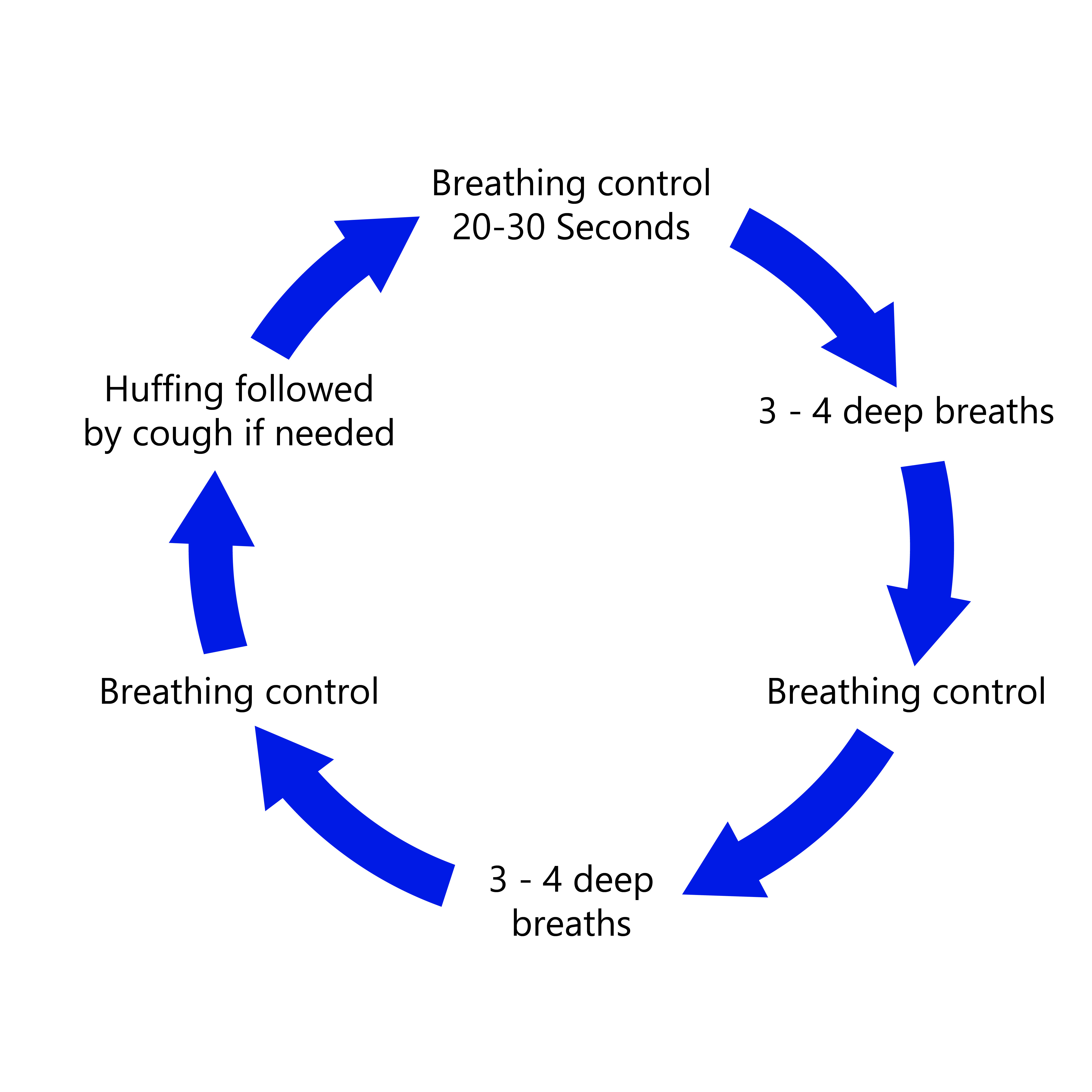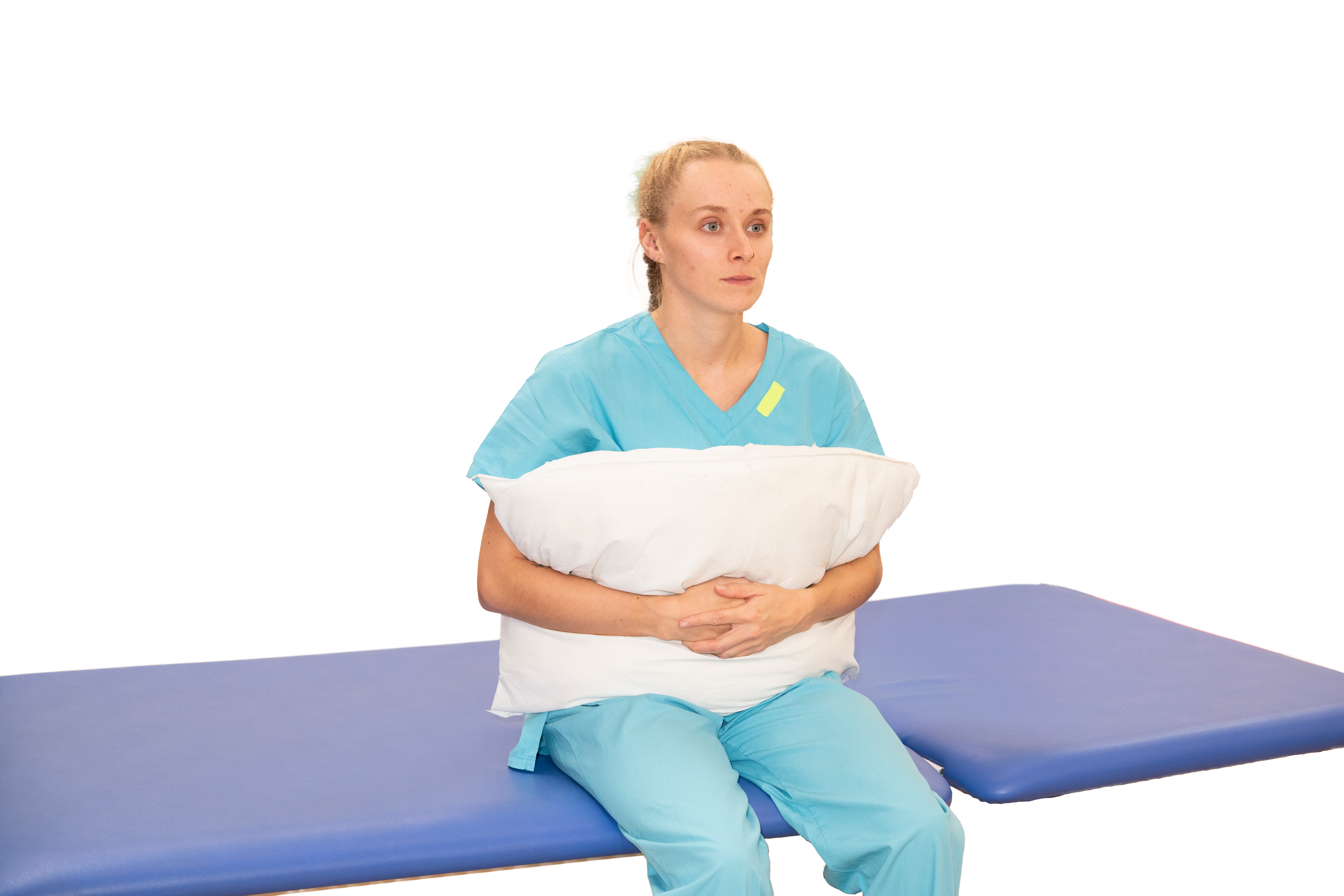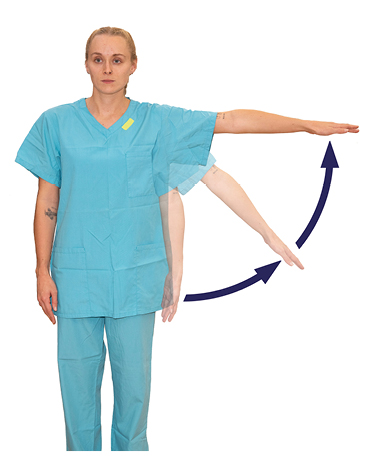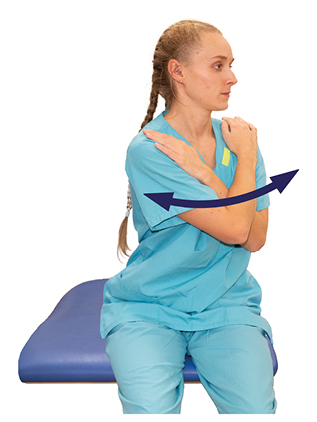Rib fractures
Information for patients from Physiotherapy
This leaflet has information about your rib fractures. It explains your injuries, what symptoms you might have, and gives you advice on treatment and exercises to help your recovery.
What is a rib fracture?
A rib fracture is when one or more bones in your rib cage breaks or cracks. This is one of the more common chest injuries. It can occur from incidents such as a fall or a traffic accident, or from playing contact sports (such as football or rugby).
Rib fractures can be very painful. The pain is often made worse by laughing, coughing, movement, and deep breathing.
Most rib fractures will heal themselves within approximately four to six weeks. However, sometimes it can take longer to be pain-free.
How will my pain be managed?
Pain is the most common symptom of rib fractures. You must continue to move and take deep breaths to avoid getting a chest infection. This is why it is so important that you take your prescribed pain relief to help with your recovery.
If you feel that your pain is not controlled or you need more pain relief, please speak to your nurse or doctor while in hospital. Speak to your GP if this happens after you have been discharged from hospital.
| Do | Don't |
|---|---|
| Do take regular pain relief. | Don't lift heavy objects which make your pain worse. |
| Do complete regular breathing exercises. | Don't play sports or exercise that makes pain worse, for around four to six weeks. |
| Do complete supportive coughing with a pillow. | Don't smoke, as this can delay bone healing. |
| Do move around. Keep active if you are able. | Don't stay still for more than one hour at a time during the day. |
| Do keep hydrated (drink plenty). | Don't strap your ribs / chest. This stops your lungs being able to expand, which can lead to chest infections. |
| Do keep your shoulders moving. |
How can I help myself?
Early mobilisation (moving around)
Early mobilisation is important when recovering from rib fractures. Moving around in the early stages of a rib fracture can prevent chest infections, and help you to clear your chest of secretions (mucous). If you need support to walk, ask a member of the nursing staff to help you. It is important that you take pain relief if you need it to move around.
Breathing exercises
The Active Cycle of Breathing Techniques (ACBT) is a set of breathing exercises that you can use to help to loosen and clear any mucous in your lungs. This is very important when you have rib fractures, as it can reduce the chance of you developing a chest infection.
There are three main stages to ACBT, and these can be performed in a cycle until your chest is clear.

Breathing control involves breathing gently, relaxed and with as little effort as possible. Breathe in and out gently through your nose. Try to relax and reduce any tension in your body. This can be useful if you are feeling breathless, anxious or panicked.
Next take three long slow deep breaths in through your nose. Try to fill as much of your lungs and expand your rib cage as much as possible. Hold each deep breath for three to five seconds if possible. Breathe out through your mouth.
A huff is exhaling through an open mouth. This moves the mucous up the airways to be cleared. To huff, you should try to expel the air out of your lungs quickly through an open mouth, as if you were trying to steam up a mirror. Complete this to try and clear some mucous. This may need to be followed by a cough. Complete two to three cycles every hour throughout the day.

Supported coughing
Coughing is important to prevent chest infections and retained mucous. It can cause pain around the area of your rib fracture. If you need to cough, hug a pillow or rolled-up towel around your rib cage to provide you with support when coughing. This can help your discomfort.
Shoulder range of movement exercises
It is important to start some gentle movement as soon as you feel comfortable to do so. Following a rib fracture your chest can become stiff, the exercises below can help to reduce this.
Complete each exercise five to 10 times, two to three times each day, unless you have been told not to by your doctor or physiotherapist.
If an exercise is too painful to complete, stop doing it and speak to your physiotherapist.
-
-1700834794.jpg) Active shoulder flexion and extension exercise; stand with your arm by your side, keeping your arm straight raise it above your head. Lower gently.
Active shoulder flexion and extension exercise; stand with your arm by your side, keeping your arm straight raise it above your head. Lower gently. -
 Active shoulder abduction exercise; stand with your arm by your side, slowly raise your arm so it is level with your shoulder. Lower gently.
Active shoulder abduction exercise; stand with your arm by your side, slowly raise your arm so it is level with your shoulder. Lower gently.
-
.jpg) Active shoulder external rotation exercise; lay down on your side, with your arm over your stomach. Keep your elbow tucked into your side, and raise your hand so it is pointing to the ceiling. Lower gently.
Active shoulder external rotation exercise; lay down on your side, with your arm over your stomach. Keep your elbow tucked into your side, and raise your hand so it is pointing to the ceiling. Lower gently. -
 Thoracic rotation exercise; sit down and cross your arms across your chest. Move your upper body slowly from side-to-side, keeping your arms in place.
Thoracic rotation exercise; sit down and cross your arms across your chest. Move your upper body slowly from side-to-side, keeping your arms in place.
When can I return to work?
If your job involves a lot of handling and lifting, speak to your employer about whether you can work light-duties until your ribs heal.
If you have any concerns about your return to work, please discuss these with your GP. Your GP can give you a fit note if you need one.
When can I return to driving?
Please speak to your GP and the DVLA for further information about when you can return to driving.
When will I start to feel better?
Each patient recovers differently. If you find that your fracture site does not feel any better after six to eight weeks, please contact your GP for further advice.
What if I have any questions or concerns when I return home?
If you have any further concerns about your current injuries, please contact your GP.
If you have a general concern and need further advice, please contact NHS 111.
For free NHS support to stop smoking, please visit One You Kent, or call One You Kent Smoke Free on 0300 123 1220.